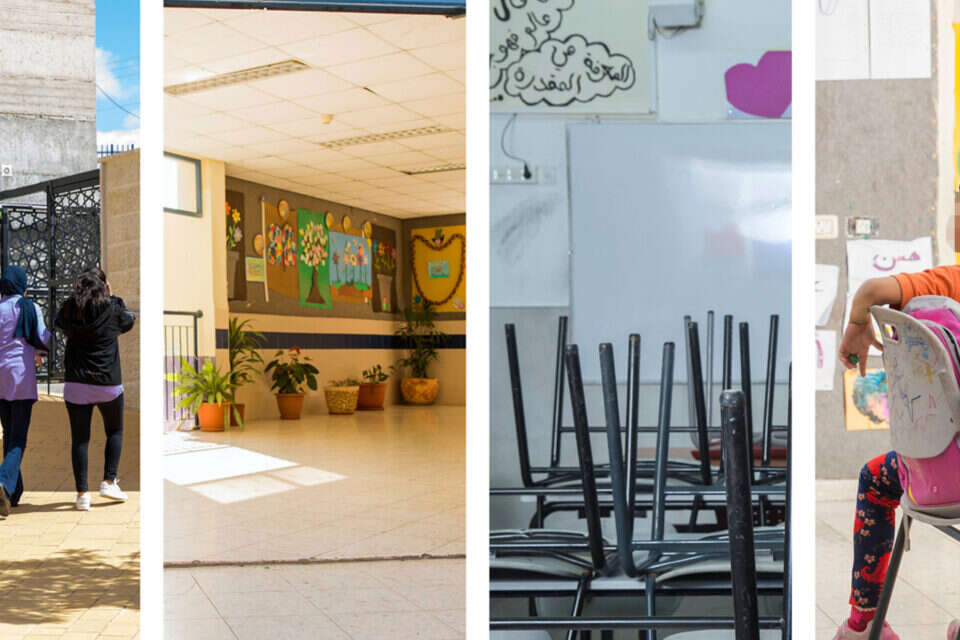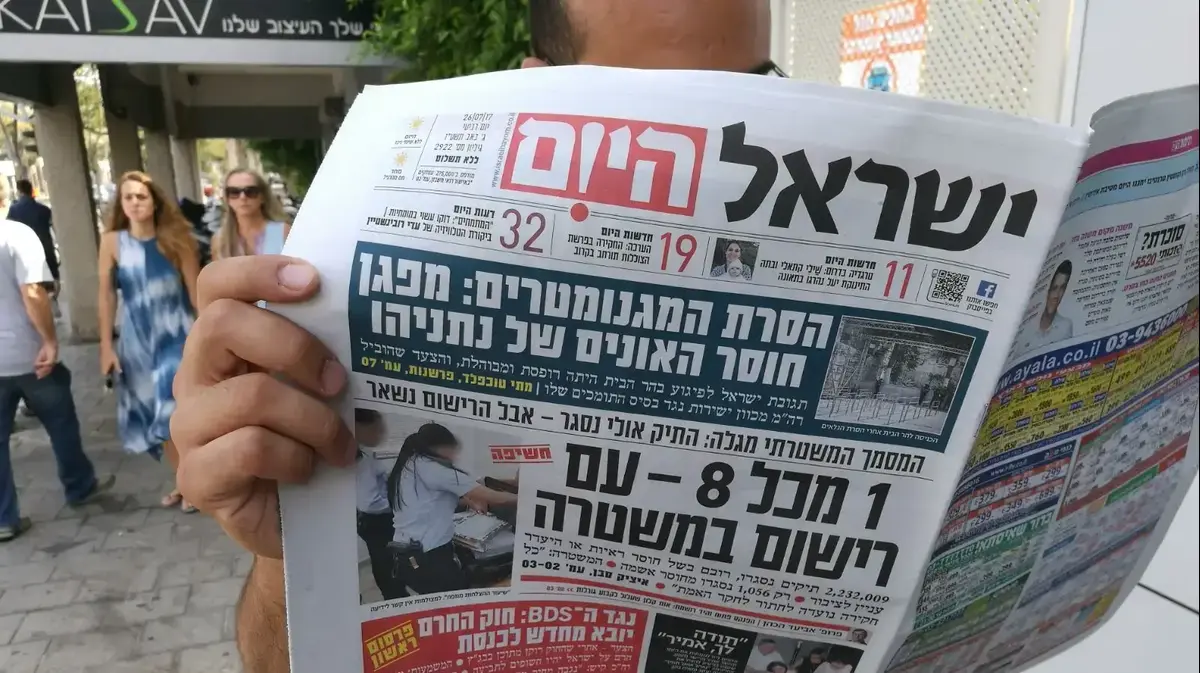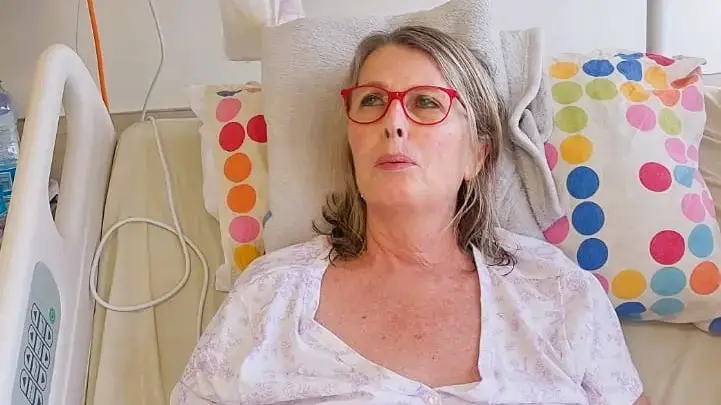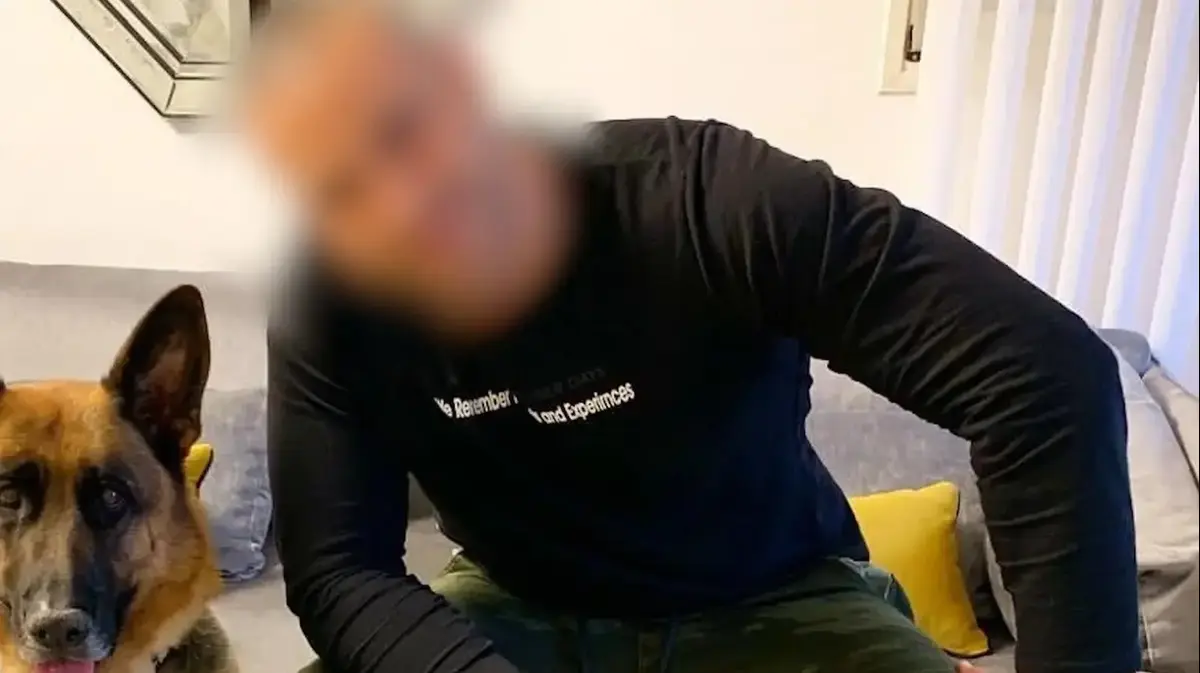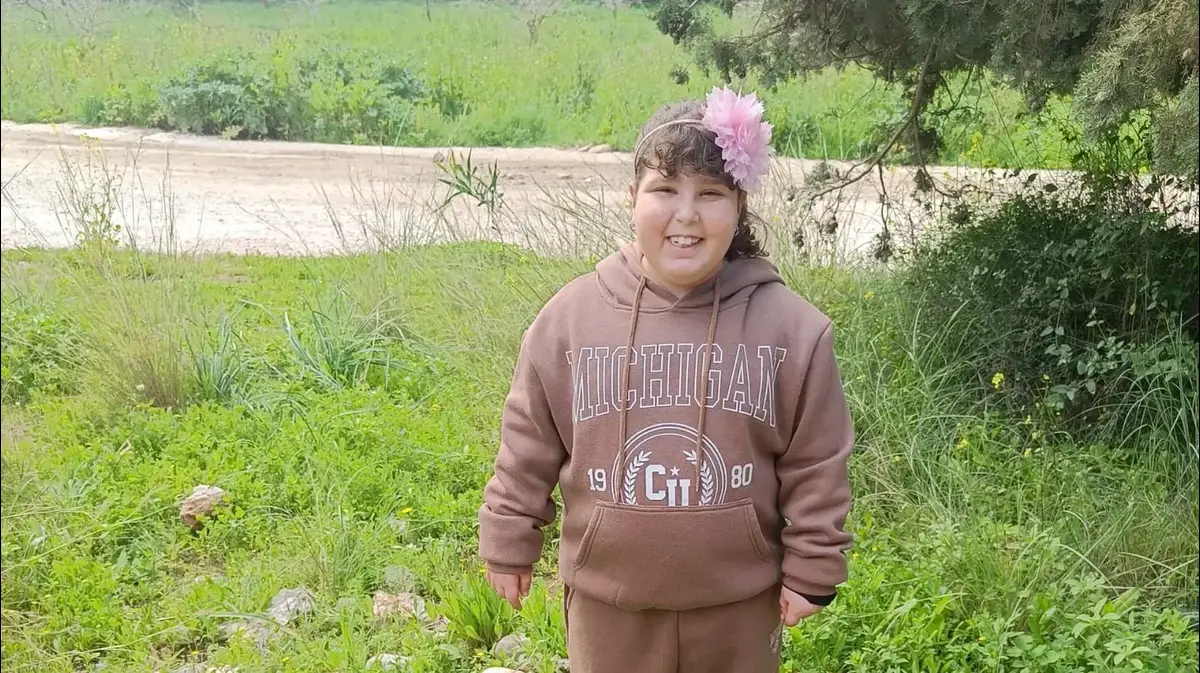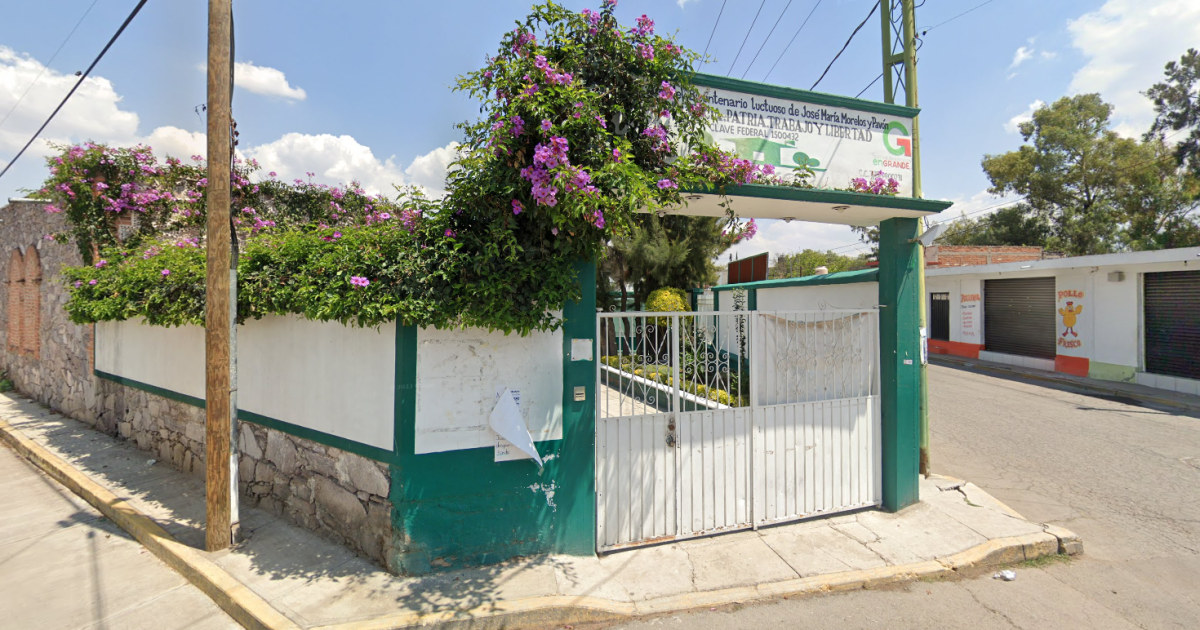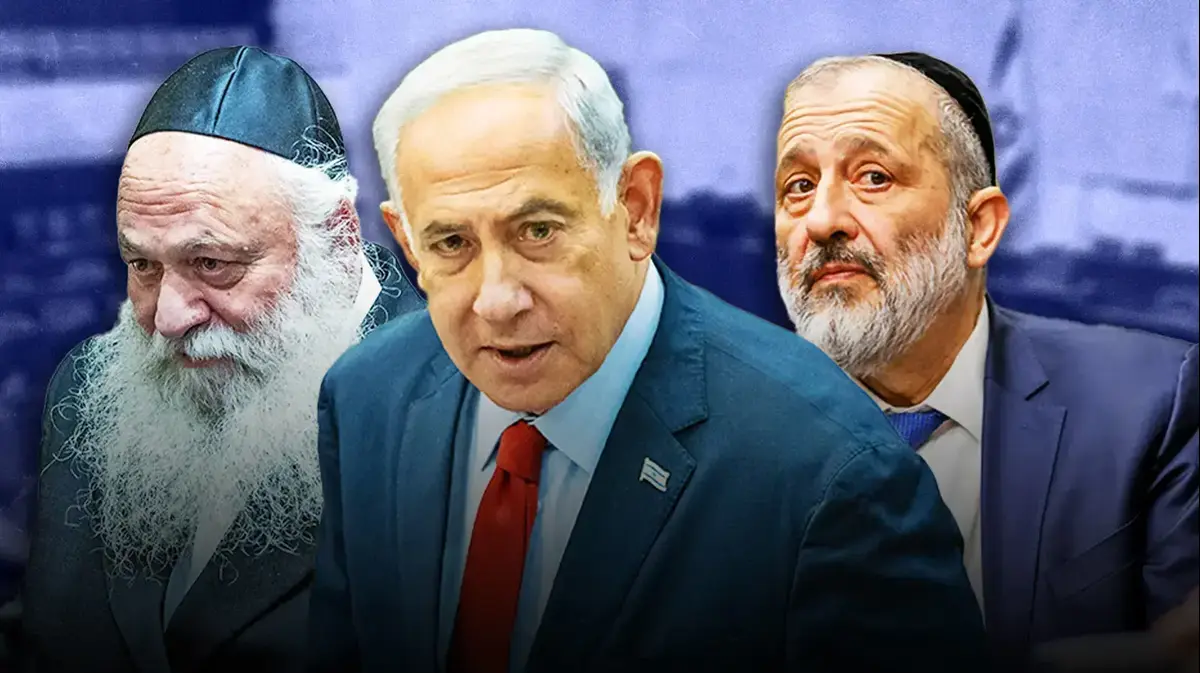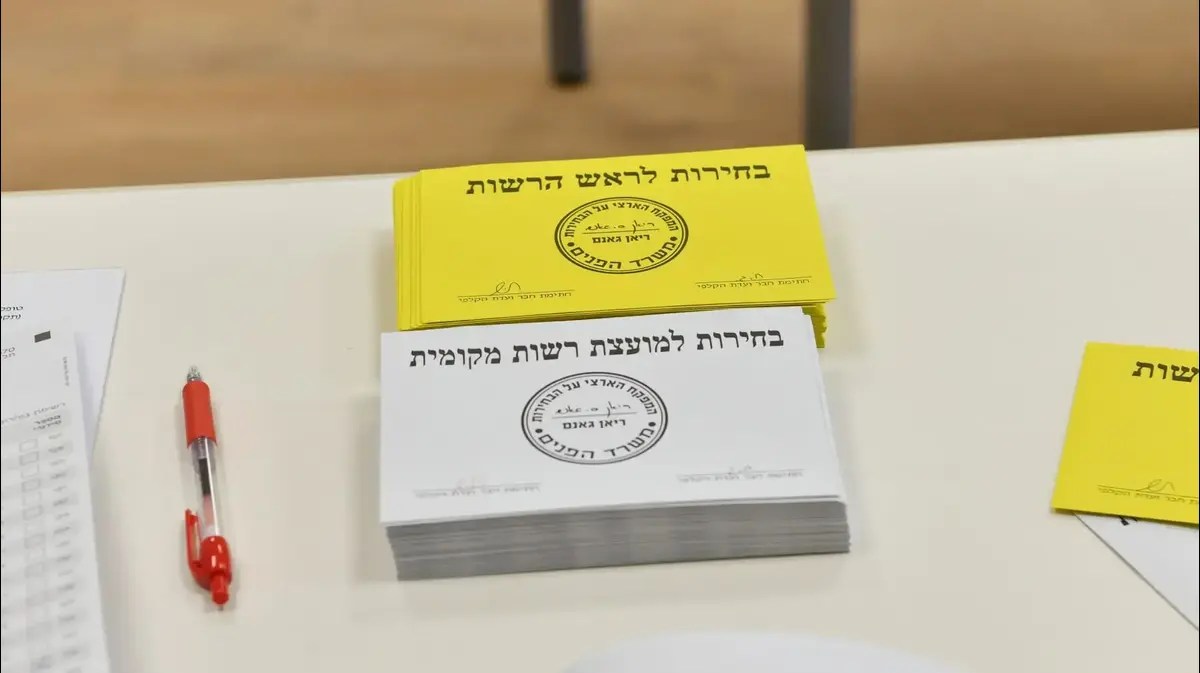Three teachers from Arab society opened the classroom door and the rooms of their hearts to us. What do educators on the educational front go through, morning after morning in front of frightened children? How they try to mediate to their students the painful reality: murders that have become an intolerable routine with 79 victims since the beginning of 2023. And what do they go through when they themselves witness a shootout or experience threats?
The media often deals with rampant crime in Arab society, from a police perspective. In the following monologues, educators gave us a glimpse into the community angle, what was done and especially what was not. When we approached the teachers, they initially agreed to be interviewed by name and with their picture, but later, the more they answered the difficult questions candidly, the more they found themselves in the dangerous and forbidden area: the space where everyone in Arab society closes their eyes so as not to see the blood spilled, and especially not the person who pulled the trigger. Because whoever reluctantly becomes a witness and dares to babble about it is next.
In the end, after deliberations by them and ours, we decided to remain anonymous to protect their safety. We chose to bring their voices here cleanly, to let the words speak for themselves. No commentary, no analysis. Just listen to the outcry of the territory.
"The situation is changing for the worse"
M. (not her real name), a 43-year-old elementary school teacher in the Triangle and mother of three:
"One of the students once said a sentence to me that entered my heart. He asked, 'When will it be my turn or that of someone in my family to be murdered?' That was a few years ago, but I remember that sentence. He was terrified that he was next, because he happened to live in an area where there were several murders. He had tears in his eyes, so I gave him a hug as an educator. I myself had to hold back from crying next to him. My whole body was shaking. Even now that I'm talking to you, my body is shaking.
Demonstration in Lod after two murders a day, photo: Yehonatan Shaul
"I have to be strong in front of the students, but I'm a human being, so sometimes I leave the classroom and cry in the bathroom or in the teachers' room. I updated the manager and the counselor on his condition, and a psychologist gave him emotional therapy. We even used art, so that the child would draw his fears.
"We experienced violence right in front of the house. I saw my neighbor being shot. After a while, they also murdered him. That was a few years ago. Once they put a bomb on a neighbor. My children at the time couldn't fall asleep or sleep in their room, because their room faced the neighbor's house, so they came to sleep in my and my husband's room, and slept on the floor because they were very scared.
"There are no students in my class whose family members were murdered, but the school has two brothers whose father was killed two years ago. There is almost zero violence at school. Our children are considered elite, most of them from notable families. The school treats every event that happens, so that the children are involved. We have a WhatsApp group for teachers, to which updates are constantly sent about the events. Then the counselor and I, as the social education coordinator, start sending material on how to deal with the case or how to have a conversation.
"Most of the time the counselor does this work, according to what is sent to her in a group of consultants. Sometimes we try to guess what questions the children will ask and formulate the answers that are worth answering. If there are instructions or material from the Ministry of Education, the principal also sends to the group so that everyone is aware of what is happening. The materials from the Ministry of Education are in Hebrew, and the materials from the counselor are part in Arabic and part in Hebrew.
"In the classroom, we first give the students the stage to see what they heard, to hear what they are afraid of and what their feelings are. Sometimes children also tell about rumors that are not true. I don't tell the child, 'You're right' or 'You're wrong,' but I'm just trying to stimulate the discourse. If there are fears, then we try to calm them. Often all the students in such cases need is one person to listen to them, nothing more. Some children are forbidden to talk about it at home, so it's important that they talk here at school. Sometimes they don't know anything, they haven't even heard that there was a murder.
"We also explain to them how to proceed if such an incident happens close to home. I tell them, 'If there are shots, God forbid, stay home and not look out the window. It is forbidden to be involved, not to look if there are dead or blood. If you're afraid, talk to your parents about it.' I try to teach children to fight fear through speech. If they don't talk, it stays stuck inside.
M.: "The student had tears in his eyes, so I gave him a hug. I have to be strong in front of the students, but sometimes I leave the classroom and cry in the bathroom."
"If there are children who have relatives who were accomplices in the murder, I don't know. In Arab society, it's forbidden to talk about it. If you speak, you will be next. This is well known. Everyone in the city knows who killed whom, but no one speaks, doesn't say the name. Everyone closes their eyes. In class, sometimes children recall what they heard at home. I just hear and don't respond, and move on to the next student. I have to hear them, but sometimes I tell them, without mentioning names.
"In the teachers' room, they speak more freely. We have an agreement that nothing comes out of the teachers' room. We hold meetings all the time on how to properly manage and conduct ourselves in these situations. They also bring us workshops and professionals and do activities for us as teachers. Immediately after a fight you have an emotional discourse.
"Just recently there was a case where a mother was murdered with her two children. We talked about it in the teachers' room and some teachers cried. And then we talked about it while running a classroom, about how scary it is that a father, who needs to protect his family, murders them. There are a lot of fears for children. I hope that everything we do as educators will affect the future of our students and as adults they will not be dragged into violence.
"As a mother and educator, I am constantly afraid for my children and students. People are constantly being shot accidentally. Maybe next time I'll be the mistake? When there's a fresh murder, I try not to leave the house. During Ramadan, they fired at the neighbors who live behind us. It really was scary. For a week, every day they fired at a neighbor. My children and I died of fear. I told them not to look out the windows, not to know the source. We don't want to know who shot or who they shot.
"My other daughter is already in university, and she still has fears from childhood, ever since she heard the bomb at the neighbor's. When she hears gunfire, she shouts: 'Mom, there are shots,' and runs to hug me. What gives me strength is God. We believe in destiny. If I am a coward and without power in front of the children and students, I will cause them harm. I try to protect them with all my might.
"Sometimes students talk enthusiastically about events as if it's a movie. Sometimes it even makes them laugh. We have to tell them it's wrong to talk like that. Life is precious, we must not talk about it jokingly and we have to take care of ourselves. Many times, when I start the lesson, I tell the children, 'I speak to you as a mother before I speak to you as a teacher,' so that they really feel how sensitive it is.
"I wish something would change for the better, but in the meantime the situation is changing for the worse. I saw that since the beginning of the year there have been 79 murders in Arab society. It's illogical, it's scary.
"I don't feel threatened anymore as a teacher. I'm in pretty good contact with my parents. I didn't get threatened. I'm not a person who is afraid to speak, but I consulted with people and professionals, and they recommended that I speak anonymously. A person cannot talk about what is happening inside him. I feel sorrow for the victims, but you can't interfere in events, just keep standing by."
"Black Box"
L. (not his real name), a physical education teacher in a Bedouin village in the Negev, 35 years old and father of four:
"As a physical education teacher, I'm the person who talks to the kids the most. At the beginning of the lesson, which takes place in the gymnasium, I put the children in a straight line, and I spend the first few minutes talking. Many times the subject is incidents of violence and murder. Some children are silent, and some children talk or ask questions. A while ago there was an incident that really hurt me. A mute and deaf father was riding an ATV with his son. They happened to get into a shootout between two tribes. The father was murdered and the son disappeared. An 8-year-old boy ran ten kilometers alone until he reached his house. It is a pity for the life of a person who was murdered for something that has nothing to do with him. I used to work as a special education teacher with deaf-mute sign language, and I was touched by this story. I felt I had to talk to the students about it. It's a shame that the media doesn't cover enough such events. This case should have been given more of a stage.
"The children's reactions are varied. Some are sad and crying, some are helpless and ask, 'What can I do?' Some say, 'Yes, I heard. I've seen on TikTok, I've seen on the news.' Some say it's already routine. One of the children said to me, 'Listen, we're little kids, what do we care about? When will you start class?'
"When there is a quarrel between clans and there are children in school from both factions, it is woe. It's horrible. At the previous school I taught at, most of the school's population belonged to the same tribe. The tribe split in two, and then half the class doesn't talk to the other half. In my time it was still just violence, now there have been murders. So I imagine the tension between the students has become terrible.
The Bedouin diaspora. Black box, photo: Dudu Greenspan
"The problem is not just how to deliver a sports lesson in such a situation, it affects the whole life. Because between the two factions that quarreled there are marriage ties. The uncle belongs to one side and the grandmother to the other. The children don't know who to identify with. The women are the ones who always eat it. There have been cases where because there have been murders, these expel each other's wives, and the daughters return to their fathers. It's very complicated.
"I'm very scared. I'm a realistic person. Last week there was a murder at a place where I had a doctor's appointment. I wanted to postpone the appointment to another date, but in the end I went and had a hand on my heart. There have been many cases where people were accidentally murdered, bystanders. It can hurt anyone.
"We usually hear from the news about these cases, and we don't have details about specific people. They talk about it in the teachers' room, they talk about it everywhere. I don't always talk to the students. For example, I didn't talk about the case where a brother murdered his sister. I heard about this incident in the media as you heard about it. This is a family that lives in the diaspora, not in the village itself. The children of this family don't come to our school. I know people from this family, but it's not pleasant to ask them about a horrific incident of this kind.
"To start rummaging is disrespectful. In the village itself, if something happens then immediately everyone knows. But in the diaspora, where every family is like a black box. No one dares to talk to them about it. When it comes to women, the matter is especially sensitive. In today's era, not all honor killings are just about family honor. Sometimes it's nerves. An argument that starts within the family and suddenly someone pulls out a knife. This is happening in other sectors.
"Sport is a good way to expend energy, not violently. Sports can be a good start to conflict resolution, but it doesn't solve all problems. It is possible to make a game between two clans, as an opening for the beginning of Sulha. In my classes, I make sure to stop all violence. In the event of a fight, I take the children to the side and talk to them, trying to figure out what the problem is. I usually solve it with talk or explanation. I give them time to reflect on what they did, and for the most part they apologize and don't repeat the act. The truth is that in my class there is almost no physical violence. Sometimes there is verbal violence, and I don't give up on that either. I explain about patience and tolerance. It's not something you do on a one-time basis, and you have to stick to it.
"I receive help and guidance from the principal and the counselor, but I haven't undergone a workshop or an organized course on the subject from the council or the Ministry of Education. I am not aware of any directive from the Ministry of Education to talk about such issues. It seems to me that in some cases the instruction is that it is forbidden to speak. But when I feel like I need to talk, I talk about it, and I'm very at peace with myself.
"We have a counselor at the school who handles these things individually and confidentially. As an educator, I always open my eyes, even beyond sports lessons, and I try to look for cases of children sitting on the sidelines, cases of ostracism. These cases make me nervous. It makes me boil when I see that someone has become a serial victim. Straight away I imagine someone is doing this to my son. The students are like my sons. In these cases, I report to the educator, class coordinator, principal or counselor, depending on the severity of the case.
"As a teacher, I was threatened. Once, for example, in a personal conversation with a student in crisis, I asked about the situation at home. Someone from the family called me and asked why I was rummaging. He got angry and threatened. I told him: 'If you keep talking like this, I'll contact the police.' The next day he came to school and apologized."
***
"As staff members, there are issues we prefer not to get close to. Some things depend on culture. Making sure a child isn't in distress is seen as a normal conversation in another sector, but with us it can be problematic. As a team, we know that there are cases where it's better not to go near them, so as not to get into problems. On the one hand, we cannot ignore a child in crisis and we have an obligation to report. On the other hand, there is a fear that parents or family members will say, 'What are you interfering with? What's your business?' It's hard to do our job properly.
"The people who encounter this the most are the educational counselors and counselors. The teachers in the end bring everything to the consultant and principal. If a consultant has a case that requires reporting, then he is in a very serious problem. If he reports it to the authorities and passes it on, then the family threatens him and tries to harm him personally and physically. If he does not report, the Ministry of Education will claim that he did not do his job. It's very complex. There have been many cases of violence with educational counselors to this day. I imagine they don't report everything because they're afraid of their families.
"I hope this publication will make even the smallest change in the world. The truth is, I'm already in despair of all these murders, that no one cares about them and no one takes care of them. This needs to be dealt with on several levels: collecting illegal weapons, punishing criminals, enforcing the law. In 85 percent of murder cases in the Arab sector, no indictment was filed. If there is a detainee, he is released the next day. The police need to do their part. We, as parents, as teachers, need to educate for tolerance, to direct students to learning and a better future, and we also need to provide students in our sector with after-school educational frameworks.
"This is a population that has been neglected by all governments throughout the ages, and now, after all these years, this is the result they are getting. I don't absolve anyone of responsibility. We are all to blame. Everyone has their part in their place. As a parent and educator, I am the principal, the council, the police, the government at all levels. We are all responsible."
"No patience"
S. (not her real name), a 52-year-old elementary school teacher in the Triangle and mother of three:
"In my class there is a student whose uncle was murdered, and a student whose brother and sister-in-law were murdered together. That's why talking about these topics in class is complex and difficult. That's why we only talk when there's an upcoming event, and you can't skip it. It's hard. We get guidance from the counselor first on how to do this.
"I walk into the classroom in the morning and say, 'You must have heard what happened, let's talk about it. What did you hear? How do you feel? How has this affected you? What's next? What do we do?' and then a round begins between the students. There are those who lash out and have a lot to say, and there are those who remain silent, even lower their heads, fold and do not want to hear and speak. Usually these are people who have experienced a loss up close.
The scene of Hanan Abu Khait's murder in Haifa on May 8, photo: Michel Dot Com
"Most kids know better than I do what happened. Sometimes there are children who witnessed the incident, and then they begin to describe: 'I passed, I saw someone on the floor and his blood was on the road,' and other descriptions like that. Some children start telling all kinds of stories about why he was murdered and who he murdered, which I skip. I don't allow. I say we don't know. On the background of the murder we speak only with a limited guarantee.
"The last time we had such a conversation in class was a few weeks ago, when there was a double murder at the entrance to the city, and one of the victims was accidentally shot. At the end of the conversation we summarize and try to offer solutions. I ask them, 'We, sixth graders, how can we prevent this? Soon you're 19 years old, how should you behave? How can you get away from all this? Then they answer that patience and tolerance are required. They understand that you have to stay away from problems.
"Today people have no patience and no tolerance. Today everyone wants to take the law into their own hands. There are children who follow politics, and they also say that we are neglected and that the police and the government need to provide a solution.
"When I see a stormy child in the class round, I transfer it to the counselor. We do not neglect any child in such a case, and send to all kinds of treatments and counselors. There may be children in school or class whose family members are criminals or murderers. But I don't know. We know who was murdered, not who murdered. There are also no wars between clans in school, and if it happened by chance, they don't talk about it at all. Avoid.
"Why? Because students pass on to parents everything that happens in our classroom. They tell the parents what the teacher said, and it makes a mess of us afterwards. Yes, I'm afraid to talk. I don't dare mention names or go into details at the event. We are all careful at school. I won't speak freely in the teachers' room either, only in a whisper with a friend sitting next to me.
S.: "Students convey to their parents everything that happens in our classroom. They tell the parents what the teacher said, and it makes a mess of us afterwards. I don't dare mention names or go into details of the event itself."
"I once had a case in which in the teachers' WhatsApp group I mentioned the name of a young man walking around with a weapon and was arrested. Someone from the teaching staff leaked it, and then a representative from the young man's family found my brother's phone number and called him. He asked, 'Why is your sister talking about us like that, based on what she says that?' We are a very respectable family so it bothered them that I wrote. Since then I've been very careful. Very much. No one in the group of teachers pays attention to the event that is being published. If I want to know exactly what happened, then I ask a friend individually, not in a group of teachers.
Women at the scene of a murder in Ramle. Crazy reality, photo: Yehoshua Yosef/Archive
"In routine, the counselor gives lessons on life skills. There is a booklet with age-appropriate activities for children. In case there is violence and murder, she distributes pages from an activity database to the educators, and we deliver it in the classroom. It comes from the supervision of the consultants. But in class we will only talk about cases related to our city. Last week there were a lot of fatalities, but no one had anything to do with us, so we didn't talk about it.
"I'm afraid to be photographed and interviewed by name. The issue is very explosive. There is no violence at all in the school itself, and even outside of it I did not witness an incident of violence. But I'm afraid for me and my children. I'm afraid they'll run into someone on the road who will shoot at them. It's crazy. And what do we do? We convene discussions at City Hall, talk, and then declare a strike. But the strike doesn't do anything, the students don't come to school. So, what's next? What's the solution? I personally don't go to demonstrations. I don't know if I'm allowed to work for the Ministry of Education.
"I'm also a person who doesn't like that kind of thing. Honestly, I don't know if I'll continue as a teacher. Voila, I got tired. There are lots of requests from parents. It's not easy to deal with parents. No taste like it used to be. A teacher once had weight. Today there is less respect for him. And the salary isn't high compared to all the burden we have. I come every morning with a lot of positive energy, but I already feel exhausted."
Wrong? We'll fix it! If you find a mistake in the article, please share with us

